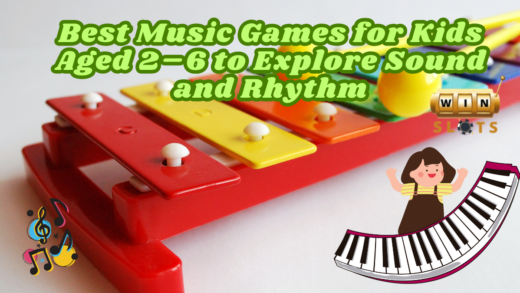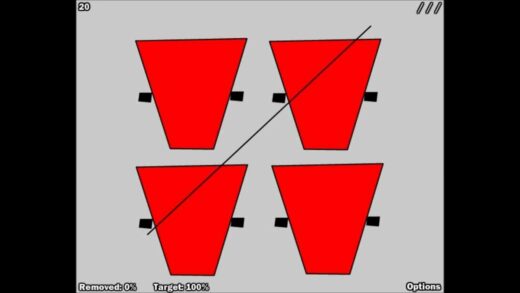Fine motor skills are essential for daily tasks like writing, dressing, and eating. These skills involve the coordination of small muscles in the hands and fingers, and they develop gradually throughout early childhood.
The best way to strengthen them? Through purposeful, engaging play. This article explores games that improve fine motor skills and how they contribute to broader child development.
Understanding Fine Motor Skills: Why They Matter
Fine motor skills refer to a child’s ability to control the small muscles of their hands and fingers with precision. These movements are critical for a variety of school and self-care tasks.
Key functions that depend on fine motor development:
- Holding a pencil or crayon
- Using scissors
- Buttoning and zipping clothes
- Typing or tapping on devices
- Feeding oneself with utensils
Delays in fine motor skill development can affect a child’s confidence and academic readiness. That’s where developmental play becomes a powerful intervention tool.
Step-by-Step Guide: Engaging Games to Improve Fine Motor Skills
Step 1: Choose Age-Appropriate Manipulative Games
Children build hand strength and coordination by manipulating small objects. These tactile experiences lay the foundation for more complex skills.
Top manipulative games for fine motor development:
- Building Blocks (e.g., LEGO, Mega Bloks): Enhances finger strength, pincer grasp, and spatial awareness.
- Beading Activities: Stringing beads strengthens bilateral coordination and hand-eye precision.
- Playdough and Clay Play: Encourages hand squeezing, rolling, and shaping—all vital for muscle control.
- Lacing Cards: Helps kids develop hand control while improving concentration.
These classic activities remain staples in occupational therapy and early learning environments for a reason—they work.
Step 2: Try Precision-Based Hand Control Games
When kids need to move slowly and carefully, they engage a different level of motor planning and control. Games that challenge dexterity help fine-tune hand movements.
Recommended hand control games:
- Operation (Board Game): Requires children to use tweezers without touching the sides—a perfect pincer grip challenge.
- Jenga: Builds control and steadiness as kids remove blocks carefully.
- Pick-Up Sticks: Teaches control over grasp and release movements.
- Marble Runs: Involves placing and guiding marbles, which builds wrist rotation and tracking skills.
These games not only support muscle development but also enhance focus, patience, and cognitive flexibility.
Step 3: Incorporate Art and Craft Play
Creative activities encourage children to use tools like brushes, crayons, and scissors—each requiring different fine motor techniques.
Effective art-based developmental play ideas:
- Cutting and Pasting: Practice with safety scissors to improve grip strength and precision.
- Coloring in Small Spaces: Promotes control over pencil movements.
- Sticker Play: Peeling and placing stickers targets the pincer grasp.
- Watercolor Painting: Encourages brush handling and wrist control.
These tasks build strength gradually and offer opportunities for self-expression and fine motor refinement simultaneously.
Step 4: Use Technology Wisely with Fine Motor Apps
In the digital age, tablets and touchscreens can also support fine motor development—if used thoughtfully.
Top apps that promote fine motor skills:
- Dexteria Jr.: Specifically designed for finger isolation and tracing exercises.
- Busy Shapes: Encourages dragging, pinching, and matching with on-screen objects.
- Montessori Letter Tracing: Helps children refine pencil grip and stroke control digitally.
- Bugs and Buttons: Combines playful visuals with touch-based activities that build hand coordination.
Always balance screen time with hands-on play, and ensure apps are age-appropriate and free of distractions like ads.
Step 5: Blend Play with Real-World Functional Tasks
Fine motor skills grow when kids use their hands in purposeful, everyday contexts. Encourage self-help skills and play that mimics adult tasks.
Functional hand-building activities include:
- Cooking and Baking (e.g., stirring, scooping, pouring)
- Gardening (digging, planting seeds, watering)
- Puzzles (especially with knobs or irregular pieces)
- Tool Sets (toy screwdrivers, nuts, and bolts)
These real-life experiences provide sensory-rich learning and boost independence alongside motor development.
Expert Insight
Dr. Tom Greer, a child development specialist, shares:
Children develop fine motor skills best through play that doesn’t feel like a chore. Games that engage their interests—whether it’s building, crafting, or pretending to cook—help them strengthen muscles, improve coordination, and gain confidence in using their hands.
Recommendation
Best Dress-Up Games for Kids That Inspire Creativity
Fun Games That Teach Shapes and Colors to Toddlers
Top Offline Party Games for Kids That Everyone Will Love
FAQs
Q1: At what age should fine motor skills start developing?
A1: Fine motor development begins in infancy. By age 3–5, children typically refine skills like drawing shapes, using utensils, and buttoning clothes.
Q2: What are the warning signs of fine motor delays?
A2: Struggling to hold crayons, avoiding writing tasks, difficulty with clothing fasteners, or poor pencil control may indicate a delay. Consultation with an occupational therapist is recommended.
Q3: Can screen time help improve fine motor skills?
A3: If chosen wisely, certain apps can help. However, they should supplement—not replace—hands-on activities. Finger isolation and tracing apps can be useful.
Q4: How often should kids engage in fine motor activities?
A4: Daily exposure is ideal. Even 15–30 minutes of targeted fine motor play each day can yield noticeable progress over time.
Final Thoughts
Developing fine motor skills is essential for a child’s success in school and daily living. Through games that improve fine motor skills, children strengthen their hand muscles, refine coordination, and build the confidence to tackle more complex tasks.
Whether it’s threading beads, stacking blocks, or cutting with scissors, developmental play blends fun with function.
When guided with purpose and consistency, these activities create a solid foundation for lifelong learning and independence.
By integrating hand control games into a child’s routine—both at home and in school—you empower them to grow through joyful, skill-building experiences that are as enriching as they are entertaining.



